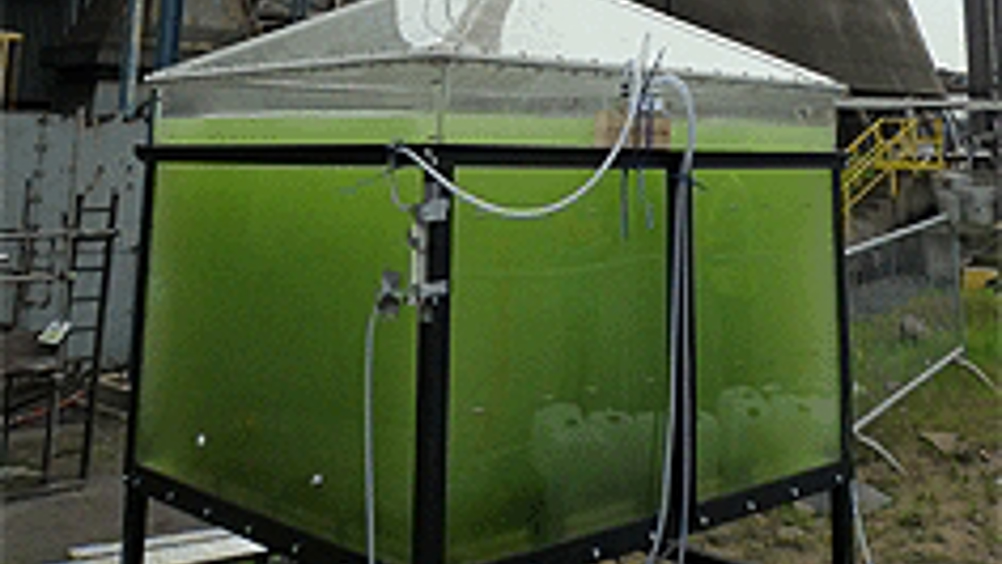Swansea research aims to harness potential of microalgae
Microalgal bioreactor systems could be built next to industrial chimney flues to take out carbon dioxide (CO2) and heat to produce bio-oils and nutritional products.

Researchers at Swansea University are investigating various ways of harnessing the potential of microalgae, which are culture blooms of photosynthetic single-celled organisms.
‘It’s a tantalising resource in the fact that microalgae grow much faster, and you can get higher yield of things such as oils, compared with terrestrial crops,’ said Dr Adam Powell of Swansea. However, he added: ‘A lot of this technology has previously been oversold to some of the larger oil-refining companies and they started to pull out because the initial claims couldn’t be verified.’
While microalgal do have some key advantages over crops — with some estimates of product yield close to 15 times greater per volume of feedstock — the main problem is the amount of energy and resources required to harvest the cells out of the culture.
‘If you see a very dark culture in a pond it’s probably less than one per cent algal cells, so you need to try and find effective ways of de-watering the culture,’ Powell said.
Register now to continue reading
Thanks for visiting The Engineer. You’ve now reached your monthly limit of news stories. Register for free to unlock unlimited access to all of our news coverage, as well as premium content including opinion, in-depth features and special reports.
Benefits of registering
-
In-depth insights and coverage of key emerging trends
-
Unrestricted access to special reports throughout the year
-
Daily technology news delivered straight to your inbox










Breaking the 15MW Barrier with Next-Gen Wind Turbines
Hi Martin, I don´t have any detailed parameters for the 15MW design other than my reading of the comment in the report ´aerodynamic loads at blade-tip...